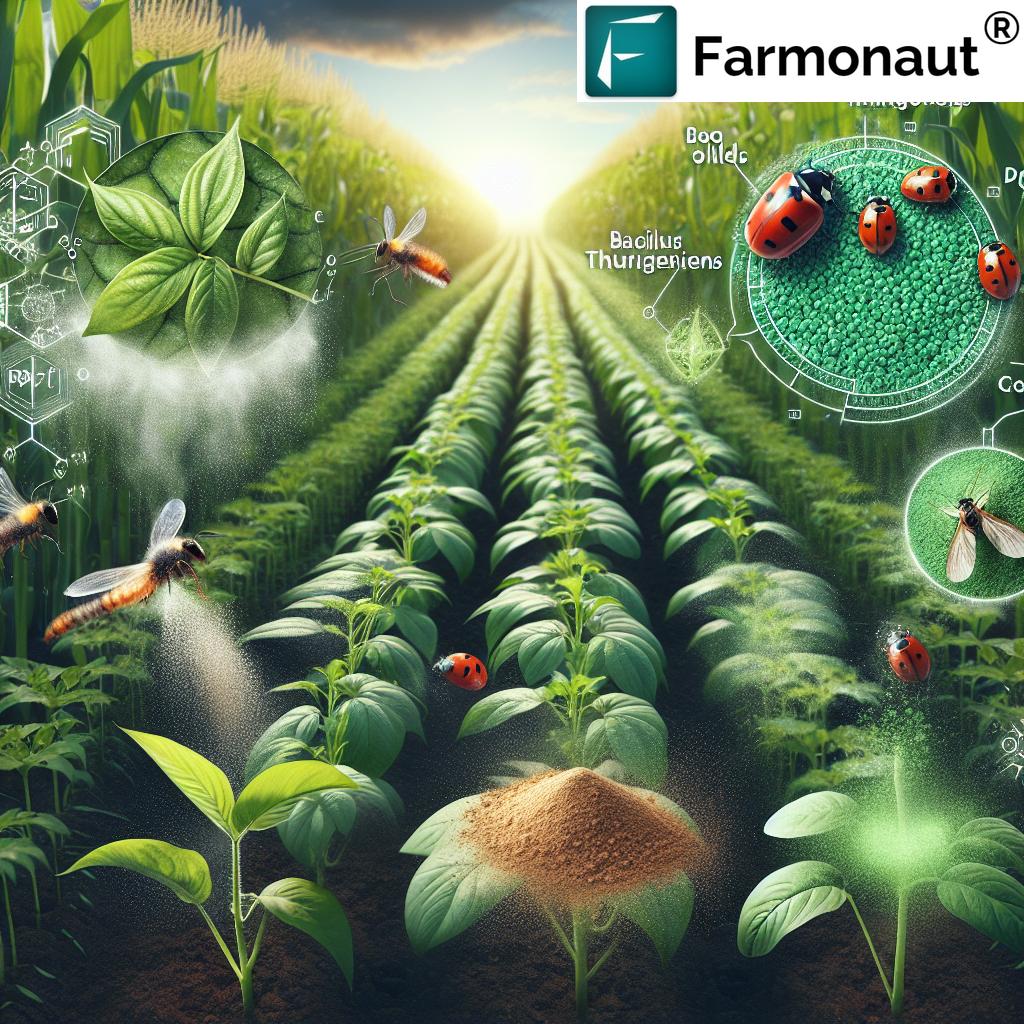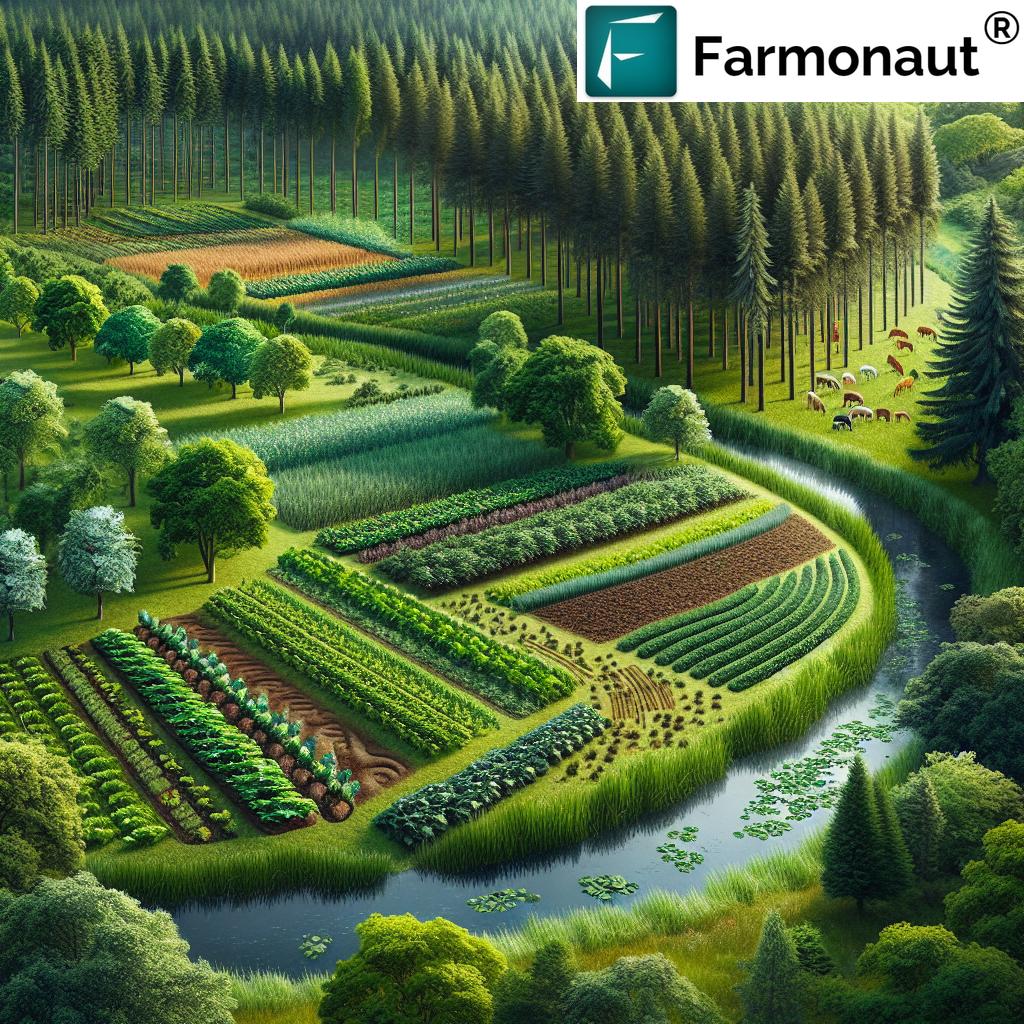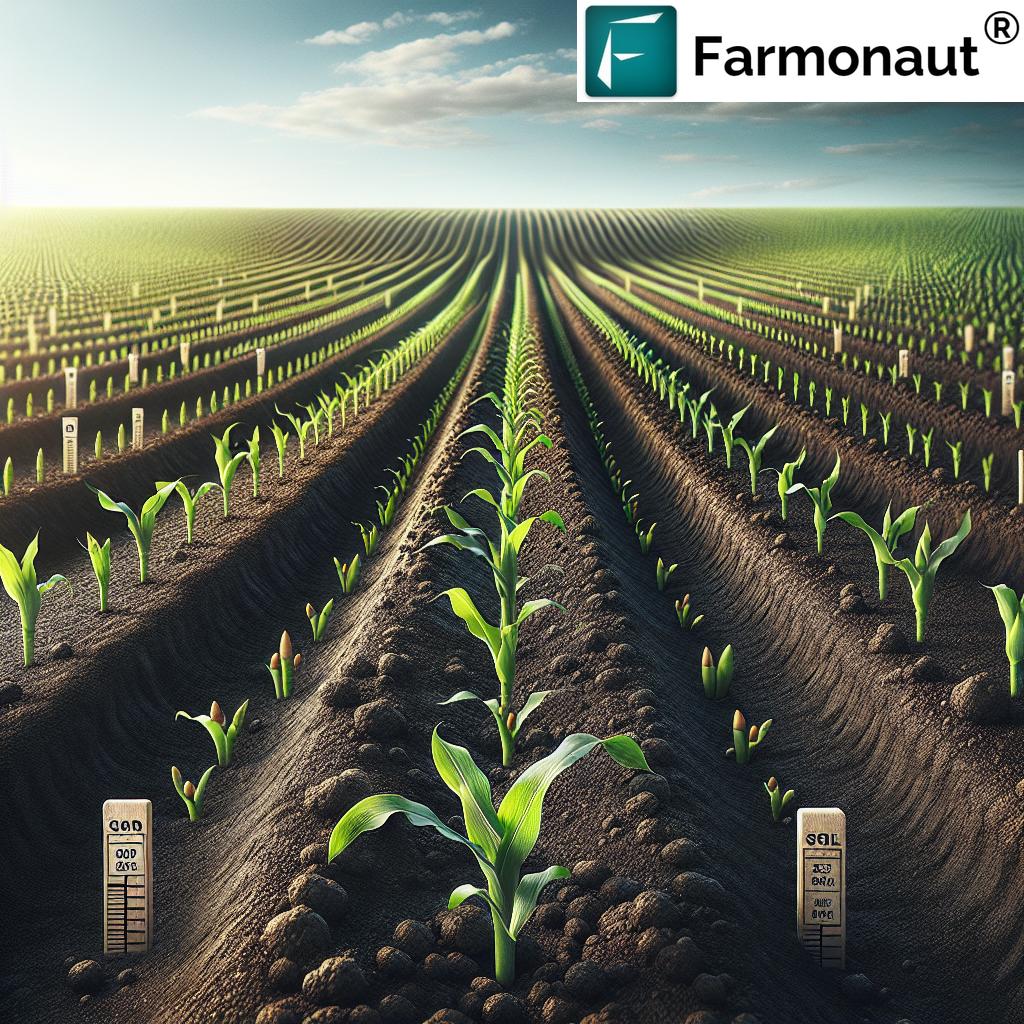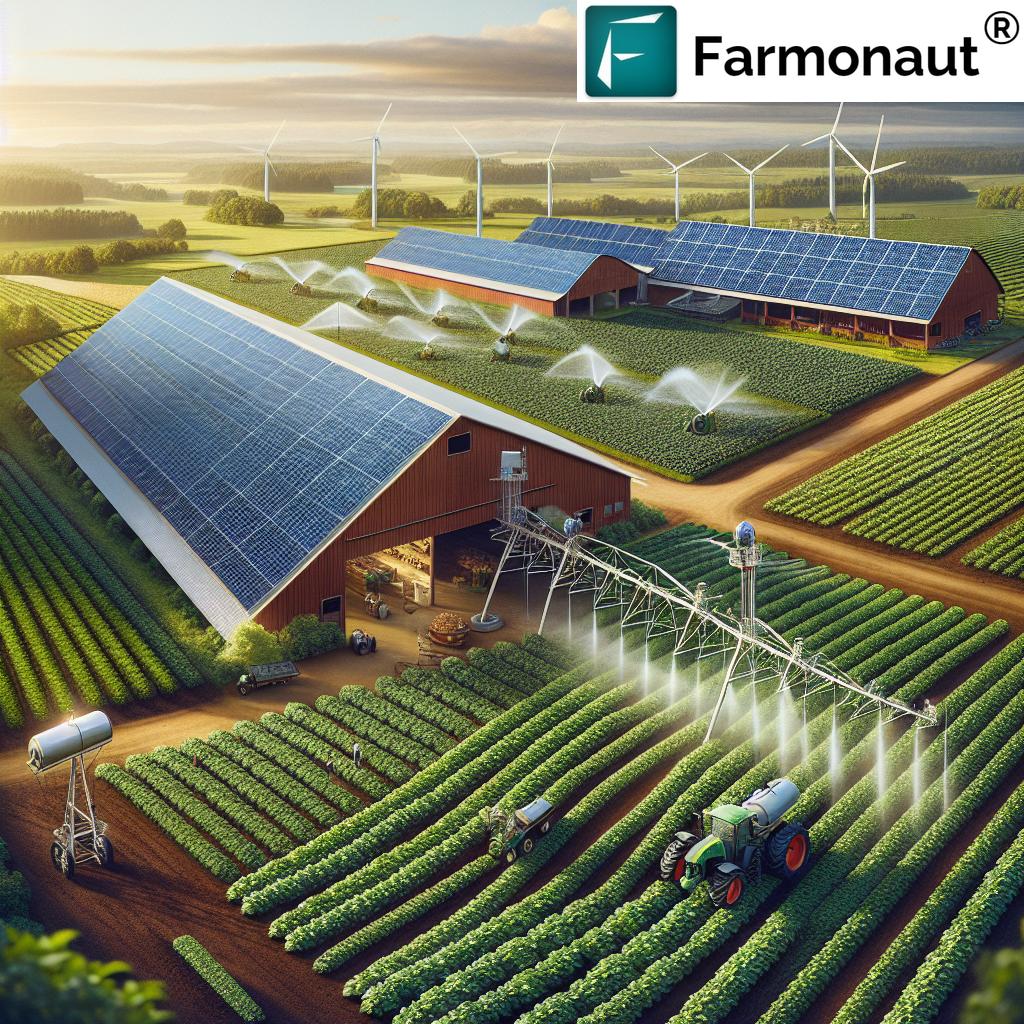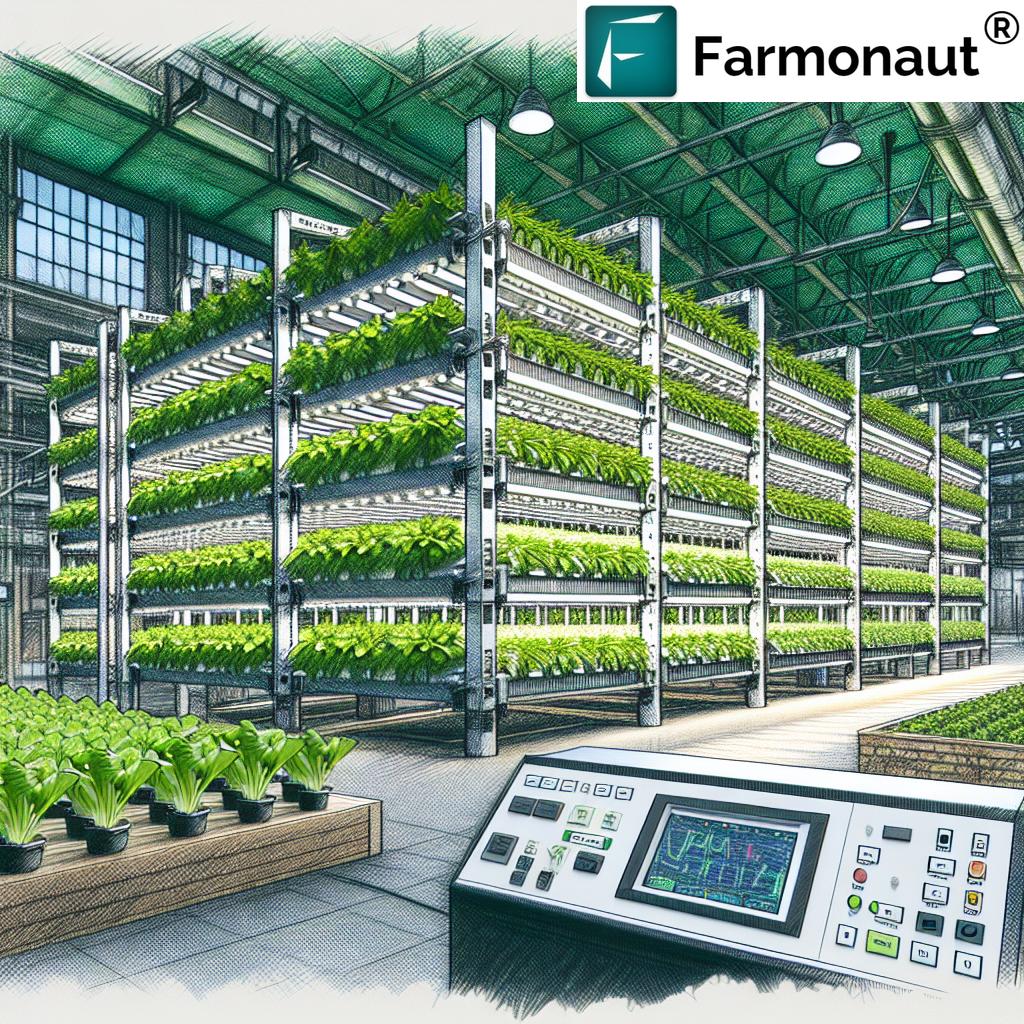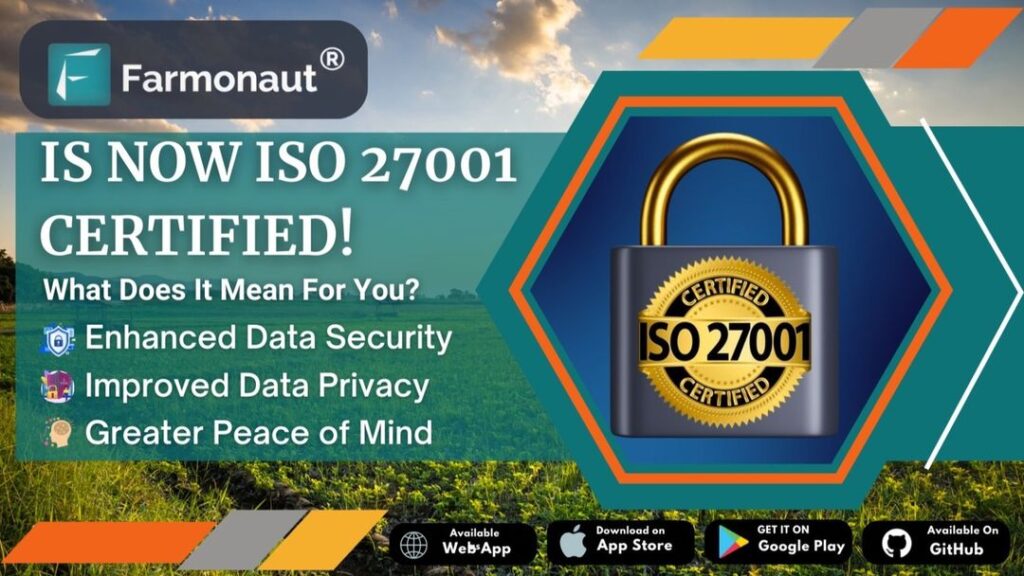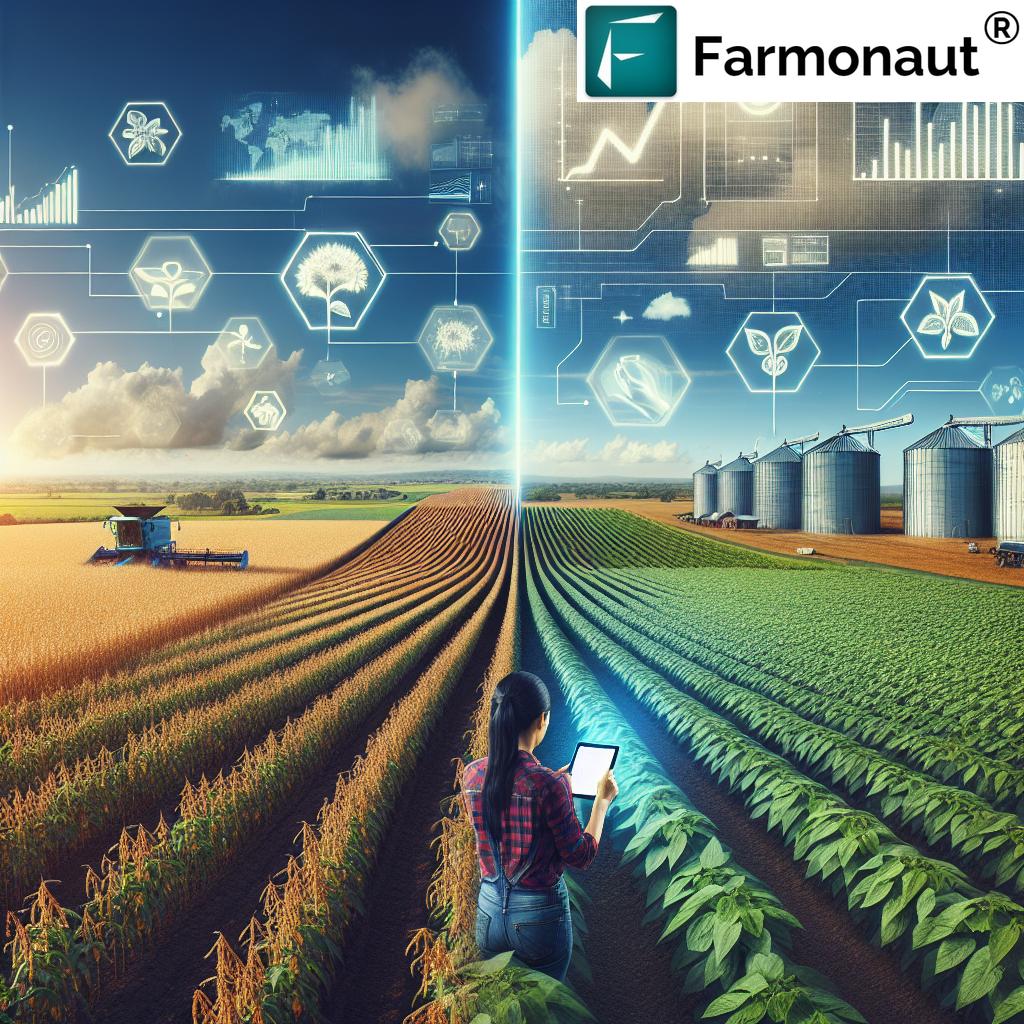Revolutionizing Agriculture: 10 Carbon Farming Practices for Sustainable Soil Health and Climate Resilience
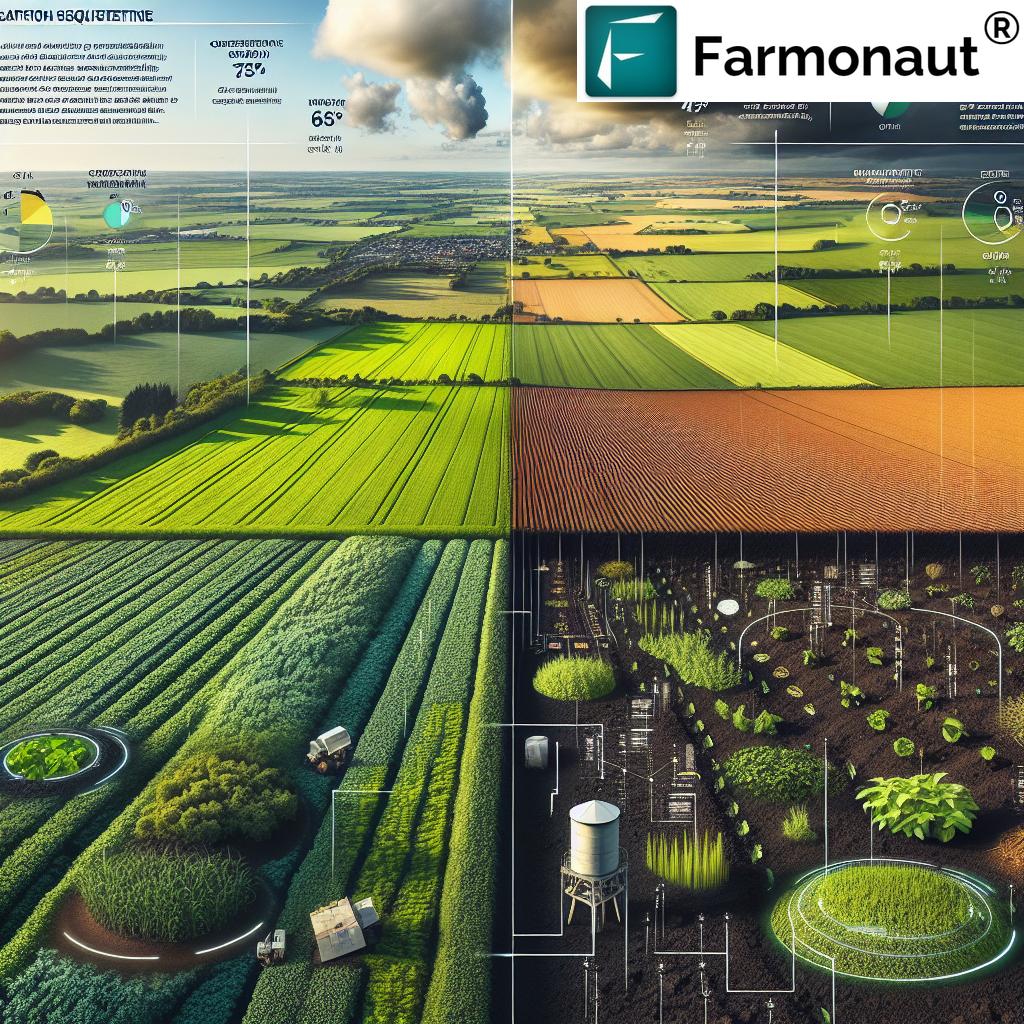
In the face of climate change and growing food demand, we find ourselves at a critical juncture in agricultural history. The need for sustainable farming practices that nurture soil health while combating greenhouse gas emissions has never been more pressing. This blog explores ten innovative carbon farming practices that are revolutionizing agriculture, offering hope for a more resilient and sustainable future.
“Carbon farming practices can sequester up to 1.5-2.5 tons of CO2 per acre annually through improved soil management techniques.”
Understanding Carbon Farming: A Path to Sustainable Agriculture
Carbon farming is an agricultural approach that focuses on capturing atmospheric carbon dioxide and storing it in the soil. This practice not only helps mitigate climate change but also improves soil fertility, water retention, and overall crop productivity. By implementing carbon farming techniques, we can create a win-win situation for both the environment and food production.
At Farmonaut, we’re committed to supporting farmers in their journey towards sustainable agriculture. Our precision agriculture technology offers cutting-edge tools for implementing climate-smart farming practices. With our satellite-based crop monitoring system, farmers can make data-driven decisions to optimize resource management and boost soil health.
10 Carbon Farming Practices for Sustainable Soil Health
Let’s dive into the ten carbon farming practices that are transforming agriculture and promoting soil health:
1. Conservation Tillage
Conservation tillage is a practice that minimizes soil disturbance during planting and harvesting. By reducing or eliminating tilling, we can:
- Preserve soil structure
- Increase organic matter content
- Reduce erosion and runoff
- Enhance water retention
This method not only sequesters carbon but also saves time and fuel costs for farmers. Farmonaut’s satellite imagery can help monitor soil health and moisture levels, enabling farmers to make informed decisions about when and how to implement conservation tillage.
2. Cover Crops
Cover crops are planted during off-seasons to protect and enrich the soil. They offer numerous benefits, including:
- Preventing soil erosion
- Improving soil structure
- Increasing organic matter
- Suppressing weeds
- Enhancing biodiversity
“Implementing cover crops can increase soil organic matter by 1-2% over 3-5 years, enhancing water retention and nutrient cycling.”
Our Jeevn AI Advisory System can provide personalized recommendations on the best cover crop species and planting schedules based on local climate data and soil conditions.
3. Agroforestry
Agroforestry integrates trees and shrubs into crop and animal farming systems. This practice offers multiple advantages:
- Increased carbon sequestration
- Improved soil fertility
- Enhanced biodiversity
- Additional income streams (e.g., fruit, timber)
Farmonaut’s satellite imagery can help farmers monitor the health and growth of both crops and trees in agroforestry systems, ensuring optimal management of these complex ecosystems.
4. Managed Grazing
Managed grazing involves carefully controlling livestock movement to improve pasture health and soil carbon content. Benefits include:
- Increased soil organic matter
- Improved water infiltration
- Enhanced plant diversity
- Reduced soil compaction
Our precision agriculture technology can assist farmers in implementing rotational grazing systems by providing real-time data on pasture health and recovery rates.
5. Compost Application
Applying compost to farmland is an effective way to increase soil organic matter and improve soil health. Compost offers several benefits:
- Enhanced soil structure
- Increased water retention
- Improved nutrient availability
- Boosted microbial activity
Farmonaut’s soil health monitoring tools can help farmers track the impact of compost applications on their fields, allowing for more precise and effective use of this valuable resource.
6. Crop Rotation
Crop rotation involves growing different crops in the same area across seasons. This practice offers numerous advantages:
- Improved soil health
- Reduced pest and disease pressure
- Enhanced nutrient cycling
- Increased biodiversity
Our AI-powered advisory system can provide tailored crop rotation recommendations based on soil health data, local climate conditions, and market trends.
7. Biochar Application
Biochar is a type of charcoal produced by burning organic matter in a low-oxygen environment. When applied to soil, it offers several benefits:
- Long-term carbon sequestration
- Improved soil water retention
- Enhanced nutrient availability
- Increased microbial activity
Farmonaut’s precision agriculture technology can help farmers monitor the effects of biochar applications on soil health and crop productivity, enabling more targeted and efficient use of this innovative soil amendment.
8. Precision Nutrient Management
Precision nutrient management involves applying fertilizers and other nutrients in the right amount, at the right time, and in the right place. This practice offers several advantages:
- Reduced greenhouse gas emissions
- Improved nutrient use efficiency
- Decreased water pollution
- Lower input costs
Our satellite-based crop monitoring system provides real-time data on crop health and nutrient needs, allowing farmers to implement precise and efficient nutrient management strategies.
9. Organic Farming Methods
Organic farming practices focus on building soil health without the use of synthetic fertilizers or pesticides. Benefits include:
- Increased soil organic matter
- Enhanced biodiversity
- Reduced chemical runoff
- Improved long-term soil fertility
Farmonaut’s technology can assist organic farmers in monitoring crop health, detecting pest and disease issues early, and optimizing resource management for maximum sustainability.
10. Water Conservation Techniques
Efficient water management is crucial for soil health and carbon sequestration. Water conservation techniques offer multiple benefits:
- Reduced soil erosion
- Improved water use efficiency
- Enhanced soil microbial activity
- Increased crop resilience to drought
Our precision agriculture tools provide real-time data on soil moisture levels and crop water needs, enabling farmers to implement targeted irrigation strategies that conserve water and promote soil health.
The Role of Technology in Carbon Farming
As we embrace these carbon farming practices, technology plays a crucial role in their effective implementation. Farmonaut’s precision agriculture solutions offer farmers the tools they need to make data-driven decisions and optimize their carbon farming efforts.
Our satellite-based crop monitoring system provides real-time insights into crop health, soil moisture levels, and nutrient needs. This information allows farmers to:
- Implement targeted conservation tillage strategies
- Optimize cover crop management
- Fine-tune nutrient applications
- Monitor the impact of carbon farming practices on soil health
By leveraging these technological advancements, farmers can maximize the benefits of carbon farming while improving their overall productivity and sustainability.
The Future of Sustainable Agriculture
As we look to the future, the integration of carbon farming practices and precision agriculture technology holds immense promise for creating a more sustainable and resilient food system. By sequestering carbon, improving soil health, and optimizing resource use, we can address the dual challenges of climate change and food security.
Farmonaut is committed to supporting farmers in this transition towards sustainable agriculture. Our innovative solutions empower farmers to implement climate-smart practices effectively, ensuring a healthier planet and a more secure food future for generations to come.
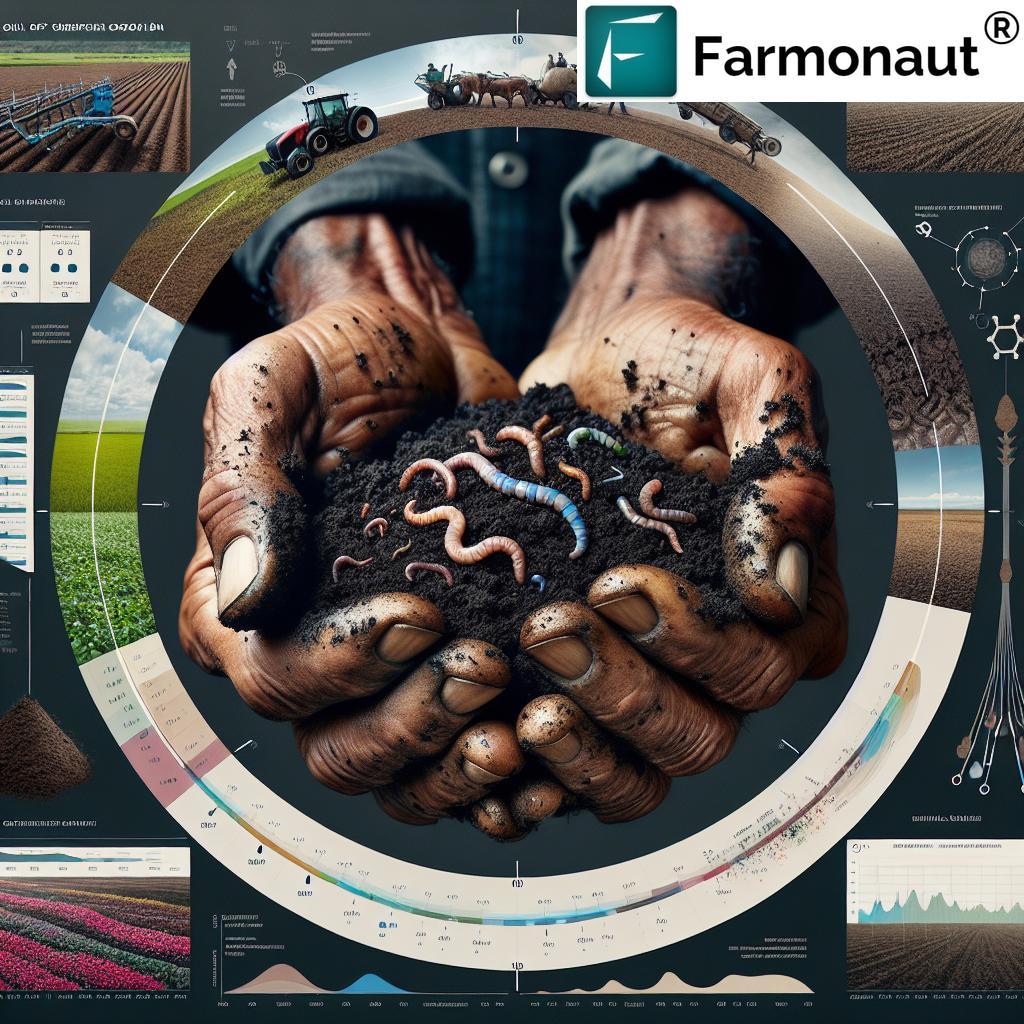
Comparison of Carbon Farming Practices
| Carbon Farming Practice | Estimated Carbon Sequestration Potential (tons CO2/acre/year) | Implementation Complexity | Additional Benefits |
|---|---|---|---|
| Conservation Tillage | 0.3 – 0.5 | Medium | Reduced soil erosion, improved water retention |
| Cover Crops | 0.4 – 0.6 | Low | Increased soil organic matter, weed suppression |
| Agroforestry | 0.8 – 1.2 | High | Enhanced biodiversity, additional income streams |
| Managed Grazing | 0.5 – 0.7 | Medium | Improved pasture health, reduced soil compaction |
| Compost Application | 0.2 – 0.4 | Low | Enhanced soil structure, improved nutrient availability |
| Crop Rotation | 0.3 – 0.5 | Medium | Reduced pest pressure, enhanced nutrient cycling |
| Biochar Application | 0.6 – 0.9 | Medium | Long-term carbon storage, improved water retention |
| Precision Nutrient Management | 0.2 – 0.4 | High | Reduced GHG emissions, lower input costs |
| Organic Farming Methods | 0.4 – 0.7 | High | Increased biodiversity, reduced chemical runoff |
| Water Conservation Techniques | 0.1 – 0.3 | Medium | Improved water use efficiency, increased drought resilience |
This table provides a comprehensive overview of the ten carbon farming practices discussed in this blog. It allows for easy comparison of their carbon sequestration potential, implementation complexity, and additional benefits. By understanding these factors, farmers can make informed decisions about which practices to adopt based on their specific needs and resources.
Leveraging Farmonaut’s Technology for Carbon Farming
Farmonaut’s advanced precision agriculture technology offers invaluable support for farmers implementing carbon farming practices. Our suite of tools includes:
- Satellite-Based Crop Monitoring: Real-time insights into crop health and soil conditions
- Jeevn AI Advisory System: Personalized recommendations for optimal farm management
- Blockchain-Based Traceability: Ensuring transparency and trust in sustainable agriculture supply chains
- Carbon Footprint Tracking: Monitoring and reducing environmental impact
By integrating these technologies with carbon farming practices, farmers can maximize their efforts towards sustainable agriculture and climate resilience.
Explore Farmonaut’s API for advanced agricultural data integration
FAQs About Carbon Farming and Sustainable Agriculture
Q: What is carbon farming?
A: Carbon farming refers to agricultural practices that remove carbon dioxide from the atmosphere and store it in the soil, enhancing soil health and mitigating climate change.
Q: How does carbon farming benefit farmers?
A: Carbon farming practices improve soil fertility, water retention, and crop resilience, potentially leading to higher yields and lower input costs for farmers.
Q: Can small-scale farmers implement carbon farming practices?
A: Yes, many carbon farming practices are scalable and can be adapted for small-scale farming operations. Farmonaut’s technology makes precision agriculture accessible to farmers of all sizes.
Q: How long does it take to see results from carbon farming practices?
A: While some benefits may be noticeable within the first growing season, significant improvements in soil health and carbon sequestration typically develop over several years of consistent practice.
Q: How can technology support carbon farming efforts?
A: Technologies like Farmonaut’s satellite-based monitoring and AI advisory systems provide farmers with real-time data and insights, enabling more precise and effective implementation of carbon farming practices.
Conclusion: Embracing a Sustainable Agricultural Future
As we face the dual challenges of climate change and food security, carbon farming practices offer a promising path forward. By implementing these ten innovative techniques and leveraging advanced technologies like those offered by Farmonaut, we can create a more sustainable and resilient agricultural system.
The journey towards sustainable agriculture is ongoing, and it requires collaboration between farmers, researchers, and technology providers. At Farmonaut, we’re committed to supporting this transition by offering cutting-edge tools and insights that empower farmers to make data-driven decisions and optimize their carbon farming efforts.
By embracing these practices and technologies, we can nurture healthier soils, produce more nutritious food, and contribute to a more stable climate. The future of agriculture is not just about feeding the world – it’s about healing our planet and ensuring a sustainable legacy for generations to come.
Check out our API Developer Docs for integrating agricultural data into your applications
Farmonaut Subscriptions
Join us in revolutionizing agriculture and building a more sustainable future. Together, we can cultivate change, one farm at a time.






